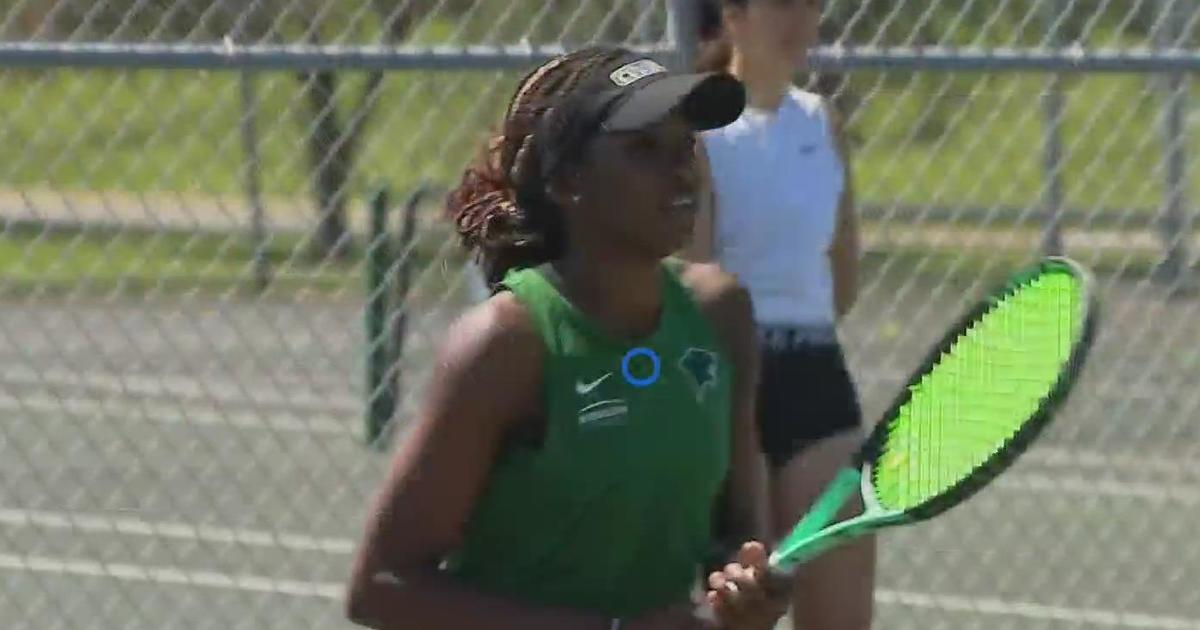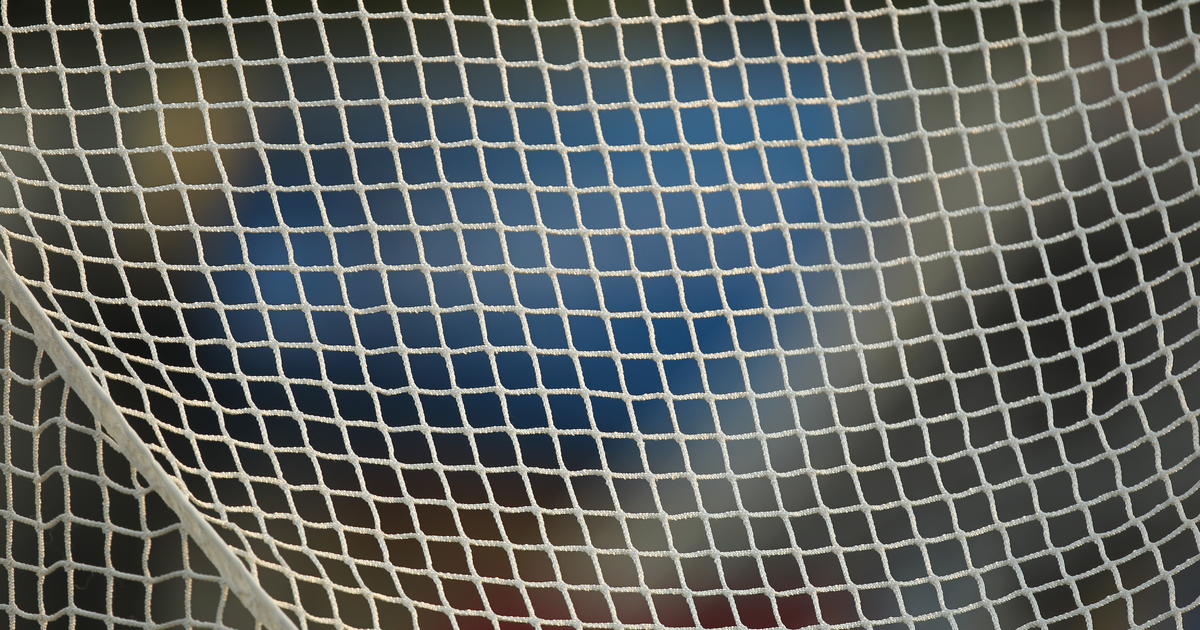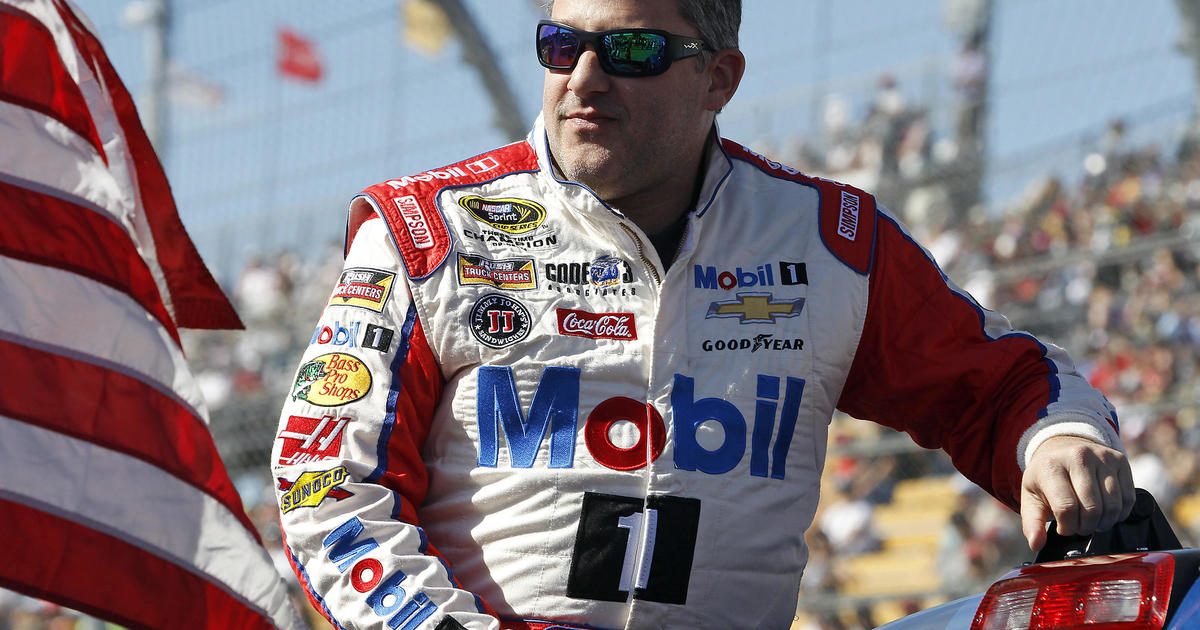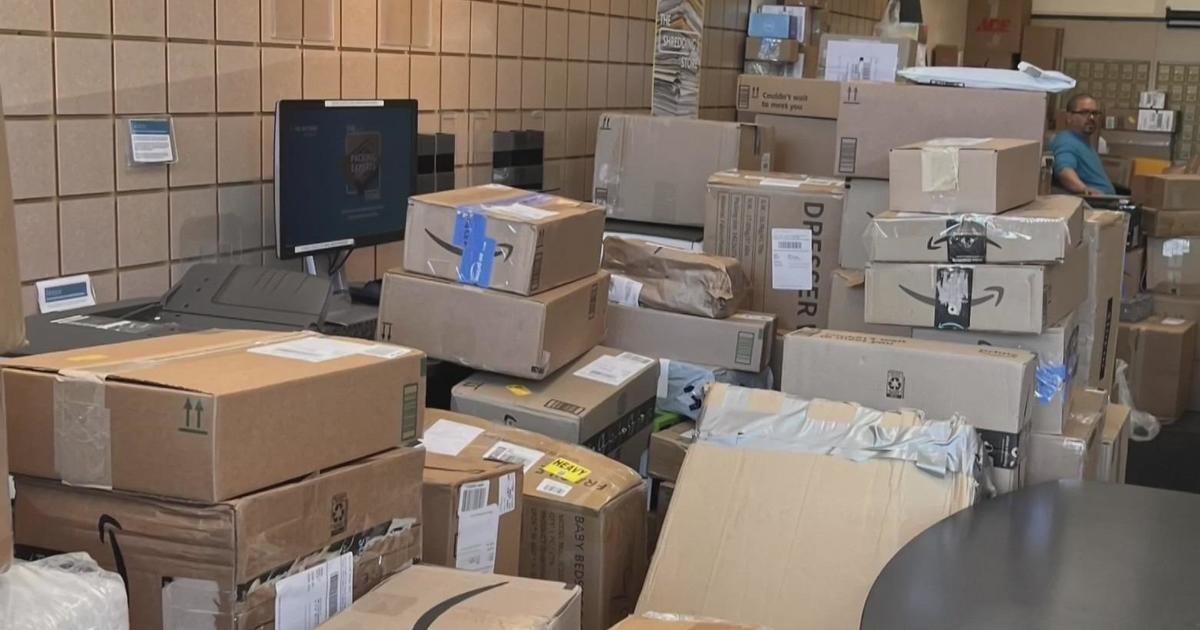Baffoe: NFL's Norm In Dealing With Violence Against Women Needs To Be More Proactive
By Tim Baffoe--
(CBS) A major difference between the NFL (and all major professional sports leagues, really) and most 9-to-5 jobs, besides the obvious, is that with the former, allegations of violence don't as much call into question an employee's ability to make sound decisions in the context of the job. I can't oversee a classroom of teens if I've shown a willingness to throw a woman against a wall. But I can, if talent warrants, captain a defense. I can't crunch numbers in most cubicles if I've been accused of violating a woman's consent. But if my 40 time pops eyes, I'm deserving of second chances and "moving on from this."
What professional athletes and existing in the real world do have in common, though, is a general lack of desire to do much about violence against women beyond maybe punishing its perpetrators -- and only when visual evidence shocks us enough to not question the victim. Talking about it and doing proactive work about it, not so much.
Over the weekend, the tradition continued of a new crop of prospects drafted into the NFL. Another more unfortunate tradition went along with it, that of players tied to domestic violence and sexual assault selected by teams. Often after those players' "stock" had dropped and pundits and scouts and former players too often ill-equipped to speak intelligently on such matters lobbed back and forth their awkward compromises of a player's ability to run or tackle despite maybe being a danger to women.
The Jacksonville Jaguars chose DeDe Westbrook, who has twice been accused of domestic violence. Team president Tom Coughlin had recorded a PSA in 2015 for the No More campaign against sexual assault and domestic violence while he was the coach of the New York Giants. Jaguars general manager David Caldwell addressed the situation by saying that "we've all been accused of things."
The Cincinnati Bengals took Joe Mixon, whose videotaped punching out of a woman was given apologia by Westbrook because birds of a feather and whatnot. Bengals impossible-to-kill coach Marvin Lewis called it "a pick that opens everybody's eyes" and went on to note the research his team did on Mixon despite him punching a woman unconscious and how the team can now "move forward."
"I don't know who isn't disgusted at what they saw," Lewis said of the video. "But that's one day in the young man's life. He's had to live that since then. He will continue to have to live that. And he gets an opportunity move forward and write a script from there on. It's come to a conclusion with the young lady. They've come to their statements, her statement about how they both would have liked, probably should have handled the day better, but again that doesn't change it."
(Note: Emphasis added is mine.)
While implicating the victim in her own punching out, Lewis didn't note how she will have to continue to live that one day in a young man's life. That's particularly when networks re-air the footage of the incident whenever Mixon's name, and inherently hers, is brought up.
The Dallas Cowboys drafted Jourdan Lewis, who has a July 10 court date regarding accusations by a woman that he "dragged her across the living room floor and then grabbed her by the neck and held her down on the floor for about three seconds."
"We have thoroughly looked at his situation much earlier," Cowboys owner Jerry Jones said, "and one of his particular greatest attributes, assets was his outstanding off-the-field character throughout his life, and on top of that, his great football character as well. We were satisfied that we would be OK there."
Jourdan Lewis mentioned afterward how the accusations hurt his draft stock. He believes he's a third-round pick instead of a first because of teams' concerns with how to handle talking about picking him.
"It's a very sensitive subject, and we have our feelings on it, but in dealing with that, you have to look at every case individually," Dolphins general manager Chris Grier said a week before the draft of his organization's approach to considering accused players. "There are some cases where you hear it was domestic violence, but the player was the one who called the police, and the girl hit him. But because the police were called, it goes on the player as domestic violence. We have to look at each case individually before we make a determination."
A week later, Grier selected Davon Godchaux, who was charged in September with domestic abuse battery and child endangerment. Charges were later dropped at the accuser's request.
The Oakland Raiders took Gareon Conley in the first round despite Conley being under investigation by Cleveland police over a rape accusation. Conley reportedly passed an independent lie detector test shortly before the draft. Video obtained by TMZ also seems to contradict the accuser's statement to police that she first met Conley in an elevator of a hotel in which the alleged rape took place. Still, the networks' discussions of Conley were problematic.
The Cleveland Browns drafted Caleb Brantley, described in football-speak as having "a major red flag" and by a coach as "stay away even if undrafted." Browns executive vice president Sashi Brown said Brantley's outstanding battery charge is "concerning" and "this may not be something we can get comfortable with" -- which may suggest the team would consider cutting Brantley because of the battery charge despite drafting him while aware of it?
None of these teams or their representatives mentioned anything about these players doing any work to improve themselves as decent men. There was nothing about education in domestic violence and sexual assault issues. There were no speaking engagements in the works. It was a lot of "moving on" and focusing on football.
Reaction from many fans and media to the bevy of draftees with accusations of violence against women was understandably concerned. Despite lingering chuds out there who either don't care about the issue or are apt to blame victims, as a sports-consuming culture we seem to have at least gotten to the point where we'll express outrage over these matters, even if it doesn't keep most of us from watching games.
With all due respect to Freeman, it didn't take this draft to feel like violence against women in the NFL or other sports has been normalized. I noticed a sports writer on Sunday question on social media why draftees tied to violence are apparently not deserving of second chances, particularly when all of us "sinners" are casting stones.
Such reasoning ignores that not all sins are equal -- my drinking ticket in college disqualifies me from criticizing woman beaters? -- and that culturally we are counterproductive regarding violence against women, particularly when involving male celebrities. Read the comments underneath this column on 670 The Score's Facebook page for proof. Actually, don't, but trust me. Refusing to be critical of athletes in an industry worth several billions of dollars continues to normalize culture that works against victims. So does their employers putting football over decency and knowing that most of us will give up talking about these players' accusations after some time has passed and football things are happening.
But even when we do decry men who are violent off the field or movie set, banishing them from their line of work might feel good to us, as though something has been accomplished. Especially in the cloning factory of the NFL that so easily replaces a player expelled for injury or age or crime and where there's a 1-in-32 chance of a criminal player compromising our personal rooting interests anyway. In the eyes of many victims and many advocates, sending a message that someone who would rape or abuse isn't welcome on TV may be of some comfort, but how much it may act as a deterrent isn't so clear.
If a person genuinely shows work being done to learn and change for the better, I'm all for recognizing that and not obstructing gainful employment. Former Ravens running back Ray Rice, the self-described "poster boy" for the discussion of violent athletes, is out there working on something beyond himself, not just paying a price for knocking out his now-wife but sincerely rehabilitating the self.
"I made the worst split-second decision of my life that I'll be paying for a long time," Rice recently told Jane McManus. "But one thing I don't do is try to live in that decision. I try to teach about it now and make sure that these young adults and young men, you know, never put themselves in that position."
I respect the hell out of that and not just because a lot of perpetrators of violence when called out will retreat into a defensive mode for the rest of their days, whining about how they're the real victims or how what they did has been overblown. Rice is out there not denying anything and working on creating good despite never being able to undo the bad.
Life sentences in the prison of public and professional opinion are unfair and counterproductive if a detestable person shows an effort to better himself. In a different intersection, the same goes for former San Francisco 49ers cornerback Chris Culliver since the 2013 public homophobic comments that merited him appropriate backlash. Culliver took it upon himself to get educated and to talk to and work with the people affected by his words. These examples are athletes turning their negative actions into positives. A fine, suspension and promising "I won't hurt people anymore" isn't a positive. It's privilege.
So why then isn't that sort of work like Rice's and Culliver's mandatory for any player deemed in violation of the NFL's personal conduct policy? Nothing about how the NFL deals with violence against women shows a desire to be proactive.
The NFL seems more than willing to conduct investigations of alleged player violence toward women to determine if players have violated the policy. Cold, secretive and inconsistent as those investigations usually are, as a Bleacher Report investigation from January shows, they ultimately seek whether to mete out suspensions. But nothing about the NFL's retroactive measures seem to have any regard for actually fixing the alleged violent man -- beyond assuming hits to the wallet and career prospects teach lessons (they usually don't) -- or fixing the cultural problem of domestic and sexual violence.
So those of us above the terrible super-fan clownishness of putting sport and celebrity and maleness above social issues then hem and haw over what seems like a glut of 2017 draftees with "red flags" and eventually move on until we overanalyze then next college player whose immense talent is attached to a reputation for putting hands on others without permission.
Men with domestic or sexual violence in their histories aren't going to stop coming out of college football ready for the next career step. Expecting serious intervention on a collective level from tone-deaf (at best) college coaches and morally bankrupt NCAA suits would be naive.
We need to perpetually remind ourselves that the NFL is always preoccupied with making money above any bit of empathy. To buy into its displays of patriotism, cancer charity promotions or child fitness is to purchase intellectual swampland. It's important to note, too, that the NFL is complicit in prioritizing a degree of on-field violence that tends to damage participant brains to the point that a tendency toward irrational behavior off the field becomes heightened, though this shouldn't forgive them for violence. The league isn't actually concerned then if a player abuses women so long as it doesn't affect revenue generation in the form of ratings, marketing, etc.
This is evident in its "evolution" from blatant indifference toward domestic and sexual violence to something strictly punitive. The league is doing something, so you can't say it doesn't care. But if it truly did care -- care in the way Rice has learned to care -- there would be some procedure in place that mandates a player in violation of the league policy isn't just punished but required to create a positive from a negative. It could be education that leads to empathy that leads to promotion of anti-violence campaigns. As of now, these draftees and future accused beaters and rapists will simply have to deal with the occasional uncomfortable question from a reporter or heckling on social media. No real change will have occurred in these players because it doesn't have to to be part of the NFL.
A healthy football culture wouldn't discuss the Hall of Fame qualifications of Ben Roethlisberger, whose approach to dealing with life post-multiple rape accusations is to preemptively block media members on Twitter. A culture of actually caring wouldn't roundly applaud Jim Brown on the draft stage not long after booing Joe Mixon's name. It wouldn't let Steve Weatherford criticize Colin Kaepernick -- an individual who puts money and actual work where his mouth is -- while Weatherford also defends domestic abuser Josh Brown.
How many of those snowflakes who've said Kaepernick made them stop watching their NFL safe space (they're lying) didn't cite Brown's admission of repeatedly abusing his wife and the support he received from his team as turning them off?
An NFL that wants a problem fixed instead of merely dealt with would make it so that a Ray Rice after the fact shouldn't just be encouraged or an exception; rather, he should be expected and the norm until players who might be violent toward women would be so rare and unacceptable in a locker room instead of the almost necessary evils some bad men are treated as by the league today.
Tim Baffoe is a columnist for CBSChicago.com. Follow Tim on Twitter @TimBaffoe. The views expressed on this page are those of the author, not CBS Local Chicago or our affiliated television and radio stations.



